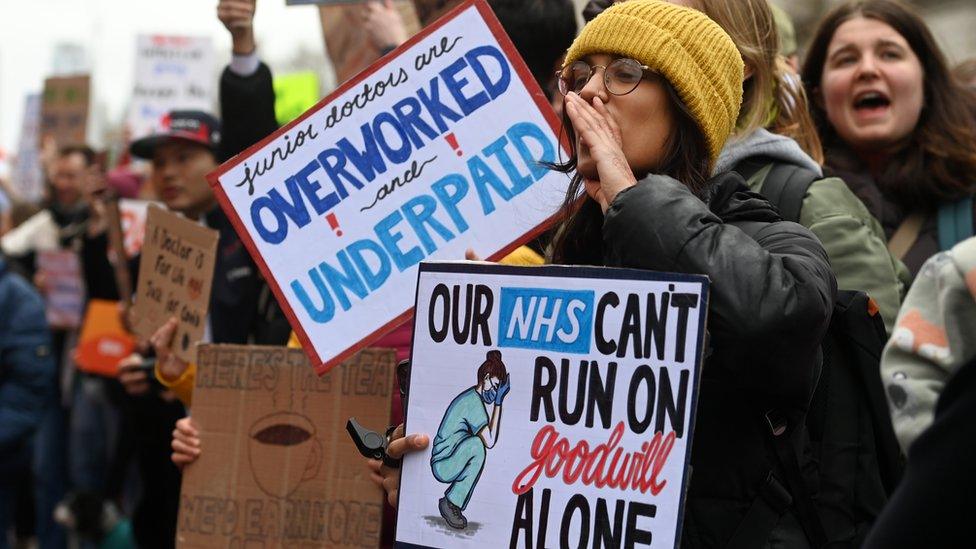NHS strikes: Colchester doctor says staffing levels are unsafe
- Published
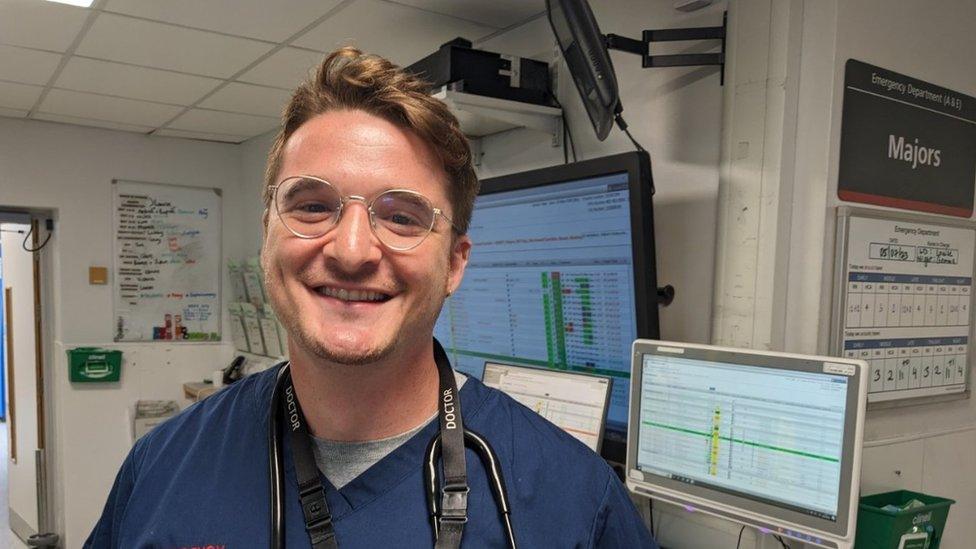
Dr Hayden Davis said he often comes home from a shift and thinks "this is not how it should be"
A junior doctor leaving the NHS to work in Australia has blamed staffing issues and safety concerns for his decision.
Dr Hayden Davis, from Colchester Hospital, in Essex, is joining the five-day junior doctor strike.
He described patients sitting in corridors, including a 96-year-old who waited overnight for a ward bed.
A government spokesman said the NHS has "record numbers of staff" with "over 53,600 more people" than a year ago.
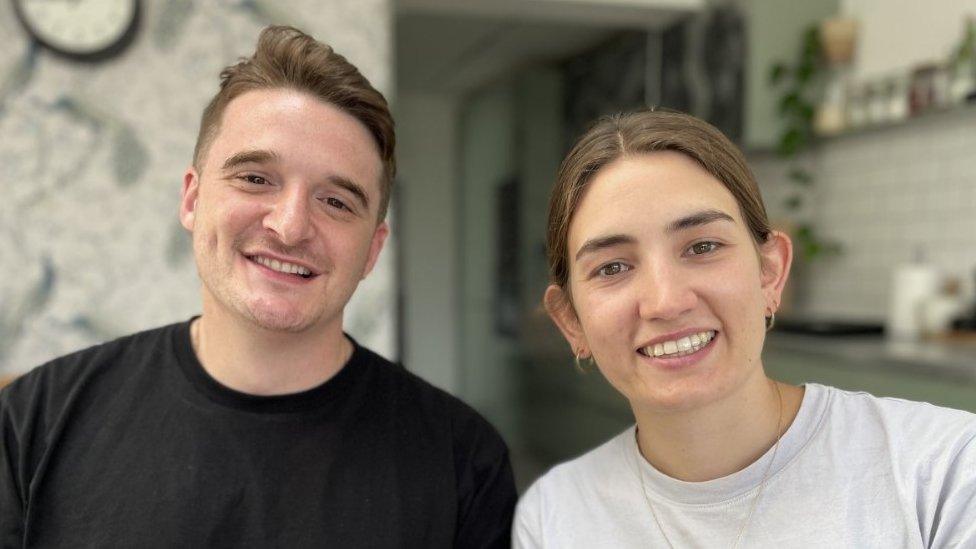
Dr Davis and his partner Dr Alice Bolton are both heading for jobs in the Australian healthcare system
Dr Davis, who works in A&E, said: "We have seen a massive pay cut and I'm witnessing massive gaps in the rota, with doctors leaving an unsafe work environment, patient safety issues and these need to be addressed [by the government].
He added: "Working a late shift and a lovely 96-year-old lady I've seen and told 'they'll have a bed available soon' and I've come back in the morning and she's still in the corridor."
The 30-year-old has been told by UK doctor friends already working in Australia that "they have never once been out of their depth and there's always been someone to ask for help".
He added that receiving "50% more pay" in Australia was another reason for his departure from the NHS.
A third year junior doctor can earn between £40,000 and £51,000 according to British Medical Association (BMA) figures, external.
The senior house doctor said he was "struggling" on his current wage - which he did not reveal - to just "chip away" at the interest on more than £100,000-worth of medical training debt.
Dr Davis said there were still days when he left work "smiling because the things that I did were really good".
He still hopes to one day return to the UK, saying despite his concerns he still loves the NHS.
"I hope that when I come back these issues we've spoken about will be resolved," he added.
As a result he is backing the BMA union walkout, which ends on Tuesday.
A Department of Health and Social Care spokesman said: "We know that if we are to build a stronger, healthier NHS for the long-term, it is vital to have the workforce to support it."
The government launched its NHS Long Term Workforce Plan in June, "backed by over £2.4bn of funding" to "deliver the biggest training expansion in history".
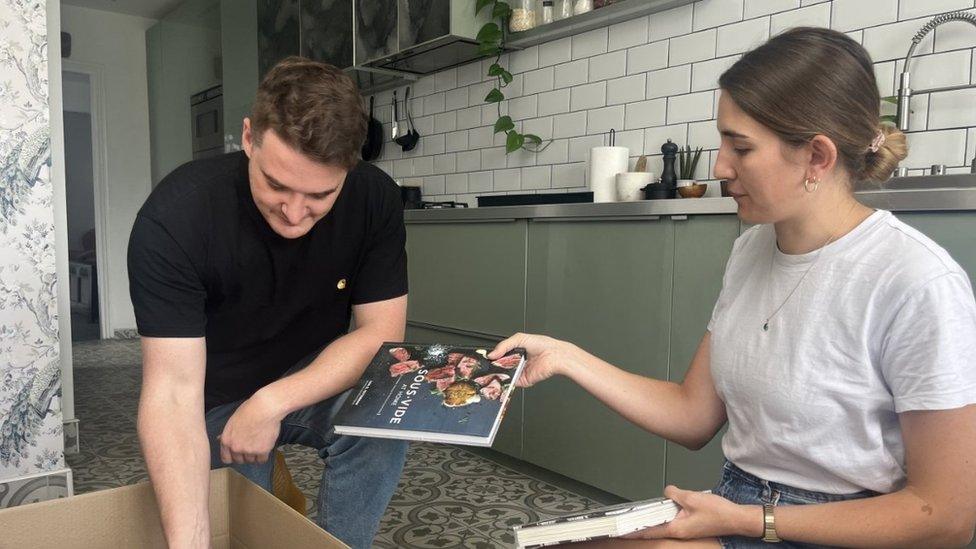
Dr Davis is a third year junior doctor, while Dr Bolton, who also works in the emergency department, is a second year junior doctor
Health Secretary Steve Barclay said: "This five-day walkout by junior doctors will have an impact on thousands of patients, put patient safety at risk and hamper efforts to cut NHS waiting lists.
"We were in discussions about pay and a range of other measures to improve the working lives of junior doctors until their representatives collapsed the negotiations by announcing further strikes.
"A pay demand of 35% or more is unreasonable and risks fuelling inflation, which makes everyone poorer."

Find BBC News: East of England on Facebook, external and Instagram, external. If you have a story suggestion email eastofenglandnews@bbc.co.uk or get in touch via WhatsApp on 0800 169 1830
Related topics
- Published3 July 2023
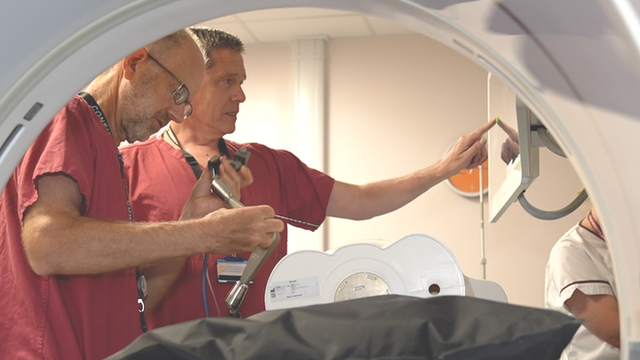
- Published25 June 2023
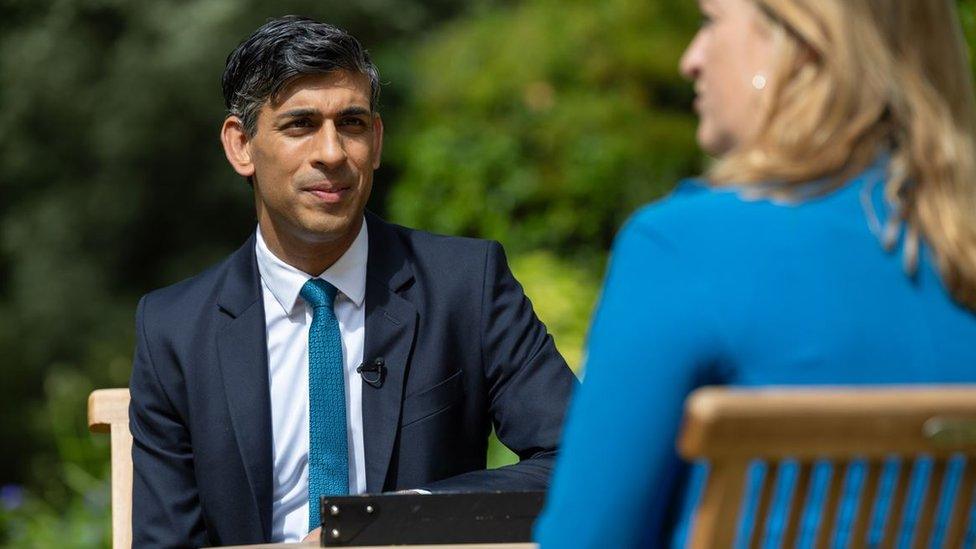
- Published23 June 2023
